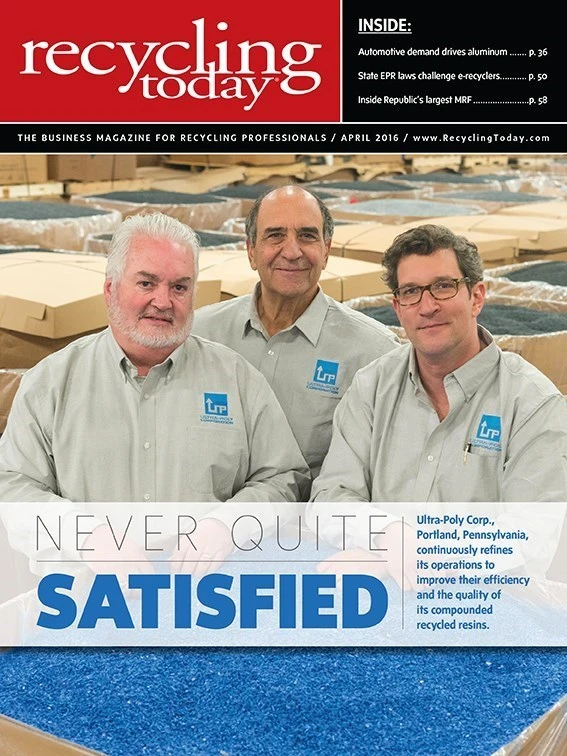Markets for recycled plastics are generally weak, according to a broker who is based in the Midwest.
While he says recyclers who know the right players and who are making informed purchasing decisions can do “OK” currently, those who are taking a more speculative approach to the market likely will encounter difficulty, particularly when it comes to selling mixed materials, such as plastic parts with metal attachments or with plastics of different types.
“Polypropylene (PP) has held up pretty well,” he continues, crediting that strength to the material’s expanded use in the automotive sector. However, he notes that demand for recycled PP is soft in the lawn and garden and building and construction sectors.
“Pricing has held up better than in the 2008-2009 recession, but only because demand is stronger than it was back then, but [demand] is not strong,” the broker says of recycled PP.

He says pricing for prime PP grades has increased a couple of pennies in recent months, but pricing for recycled materials has not followed suit. The broker says this is the result of “demand destruction” as pricing for off-spec PP is more favorable than that of recycled PP. “It is hard to compete on the recycled side.”
A recently announced move by Houston-based ExxonMobil could further lessen demand for recycled PP in the near future. The company told its customers in late March that it plans to cut U.S. PP prices by 3 to 5 cents per pound, or $66 to $110 per metric ton, in April, likely in response to rising imports, according to ICIS, a petrochemical market information provider with U.S. headquarters in Houston.
According to ICIS’ sources, the decrease is probably in response to U.S. PP prices being among the most expensive globally. U.S. prices for this material are easily 20 cents per pound more than Asian material, according to ICIS, which has led to increased imports.
In other news related to primary plastics production, U.K.-based Ineos Group Ltd. reportedly is considering whether to expand its U.S. factories to take advantage of low-cost natural-gas liquids that are used to make ethylene and plastics. Such a move could place additional pricing pressure on recycled olefin plastics. According to an article from Bloomberg, Ineos may add 250 million to 1 billion pounds of annual ethylene production at its Chocolate Bayou site near Houston, as well as additional PP and alpha-olefins capacity. Decisions on all three investments will be made within a year, Bloomberg reports, with the expanded ethylene output available early next decade.
Back to recycled plastics, the broker based in the Midwest says China’s reintroduction of its Operation Green Fence initiative has left no market for some materials, such as certain types of mixed plastics.
He says recyclers are feeling the effects of such changes. “I’m not unexcited about the business; but, the business has changed, and everyone is coming around to that.
“The industry is going to be way smaller a year from now,” the broker continues, referring to a market shakeout that will cause marginal players to change their business models or to exit the industry.

Explore the April 2016 Issue
Check out more from this issue and find your next story to read.
Latest from Recycling Today
- Phoenix Technologies closes Ohio rPET facility
- EPA selects 2 governments in Pennsylvania to receive recycling, waste grants
- NWRA Florida Chapter announces 2025 Legislative Champion Awards
- Goldman Sachs Research: Copper prices to decline in 2026
- Tomra opens London RVM showroom
- Ball Corp. makes European investment
- Harbor Logistics adds business development executive
- Emerald Packaging replaces more than 1M pounds of virgin plastic





